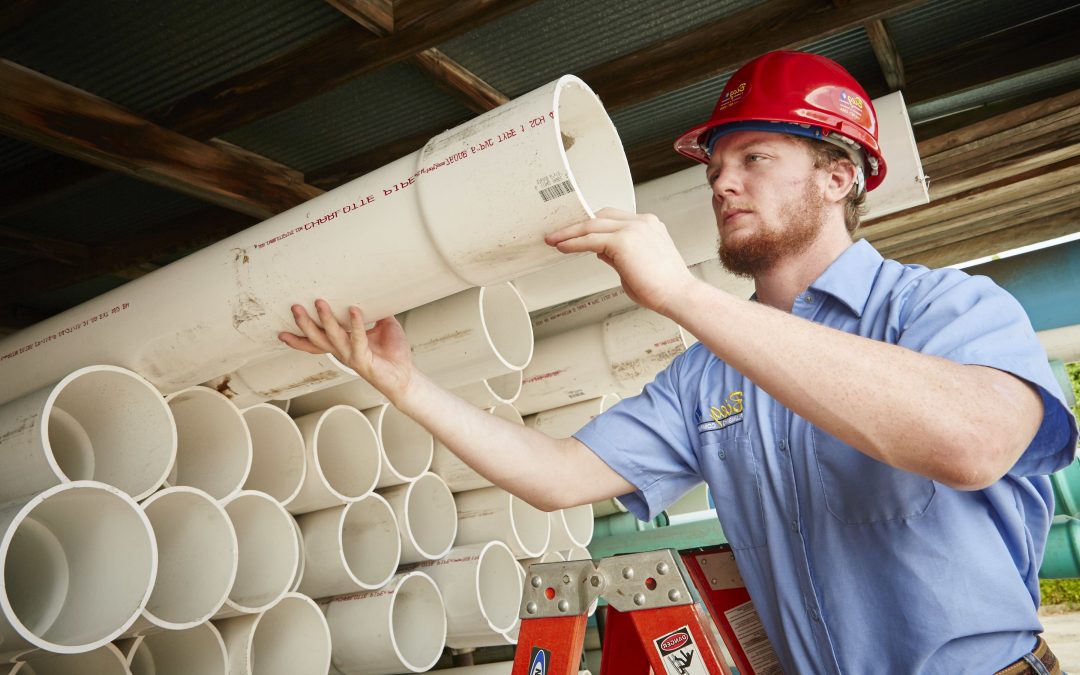Choosing the right material for your property’s plumbing system is a big decision. Cast iron and plastic PVC are two of the most common options for pipes, and they each have their pros and cons. Don’t make your selection without being informed on what material is the best for your situation.
Cast iron and PVC pipe comparison
Cast iron plumbing is a tried and true method that has withstood the test of time. In fact, the reservoir system for the famous fountains of Versaille were constructed with cast iron during the late 17th century and are still in use today! Safe to say, durability is one of its strengths. You must still be vigilant about maintenance, however, as cast iron pipes are prone to rust and must be repaired once the first signs of it are seen.
PVC pipes are made from plastic, are durable in their own right, and don’t suffer from issues such as rust. Here are some more comparison points:
- Adjustability. Modern cast iron systems are surprisingly adjustable. Even after installation the fittings can be adjusted and oriented differently without problems. This can be helpful during home remodels. PVC can’t be adjusted after the fittings are installed, and if changes are needed, sections of the plumbing system have to be replaced.
- Price. PVC pipes and fittings can cost up to 50% less than cast iron equivalents. They are also significantly lighter and take less time to install, meaning labor costs are lower. Unless extensive fire-stopping procedures must be followed, a PVC installation will typically be easier on the wallet.
- Fire resistance. PVC and cast iron are both fire-resistant. However, the self-ignition temperature of PVC is 450 degrees, meaning it can melt in house fires. Cast iron pipes are extremely resistant to heat and won’t melt.
- Flexibility. Although cast iron is strong, it can be brittle and break when blunt force trauma is applied. PVC is a much more flexible material and can withstand these forces without breaking.
- Sound dampening. Cast iron is thick and dense. Water flowing through it won’t cause as much vibration as it would in a PVC pipe. These vibrations are what lead to noise, so if sound dampening is a major concern, cast iron is the better choice.
- Water friction. The interior of PVC pipes are much smoother microscopically than cast iron pipes, resulting in less fluid friction and more consistent flow rates. Pressure will therefore not fluctuate as much and pipe performance will be better.
While PVC doesn’t quite have the rich history of cast iron, it has still been used since the 1950s to great success. Given its overall durability, attractive price and consistent flow rates, we recommend going with PVC for residential sewer lines. If you need a more heavy-duty commercial line, need to comply with strict fire-stopping regulations or want the quietest possible plumbing system, cast iron is a great choice.
If you are still unsure about which direction you should go regarding your plumbing system, contact us at Bieg Plumbing today for a consultation. We have served the St. Louis area for nearly 60 years and can guide you into making the best decision. We have experience with both materials and can install, repair or replace whatever you need.
All those choices got you stuck? Call in the red truck!

